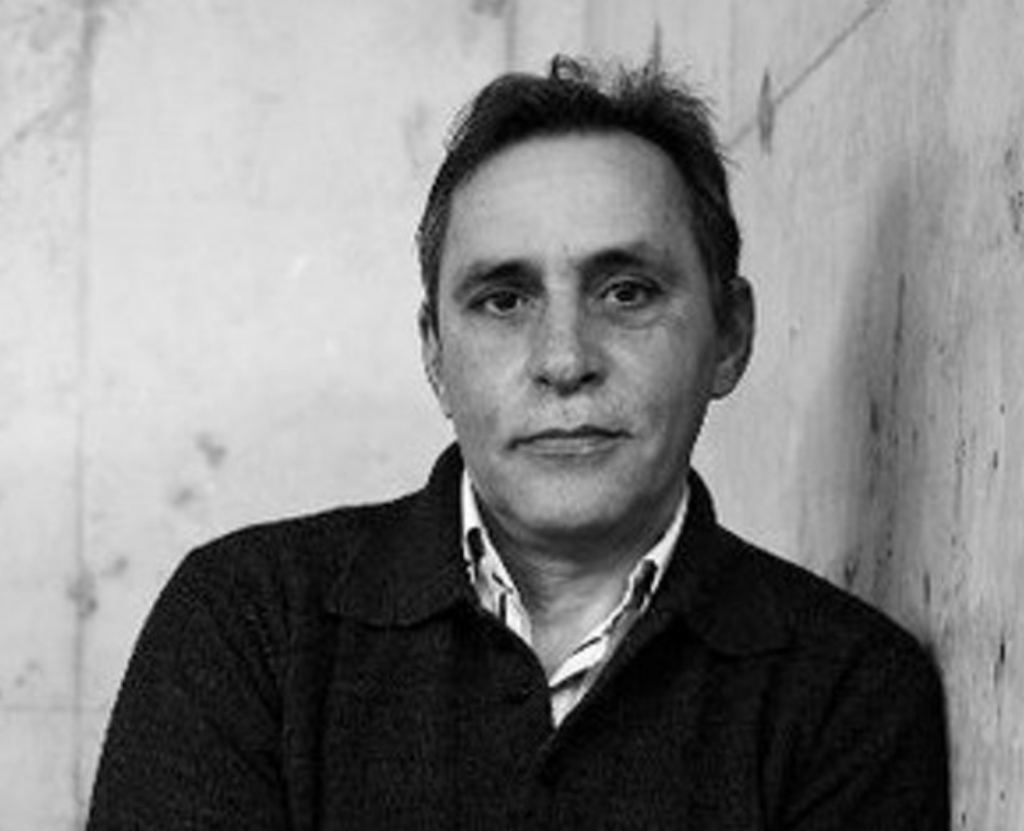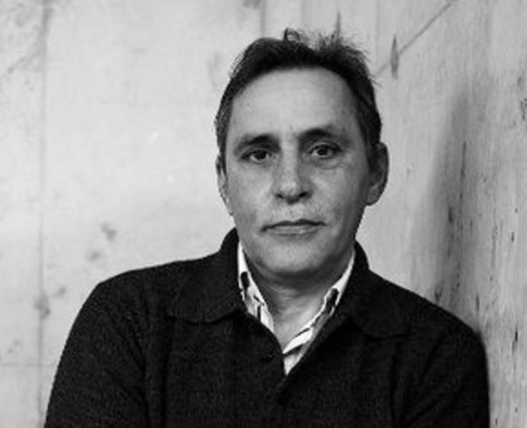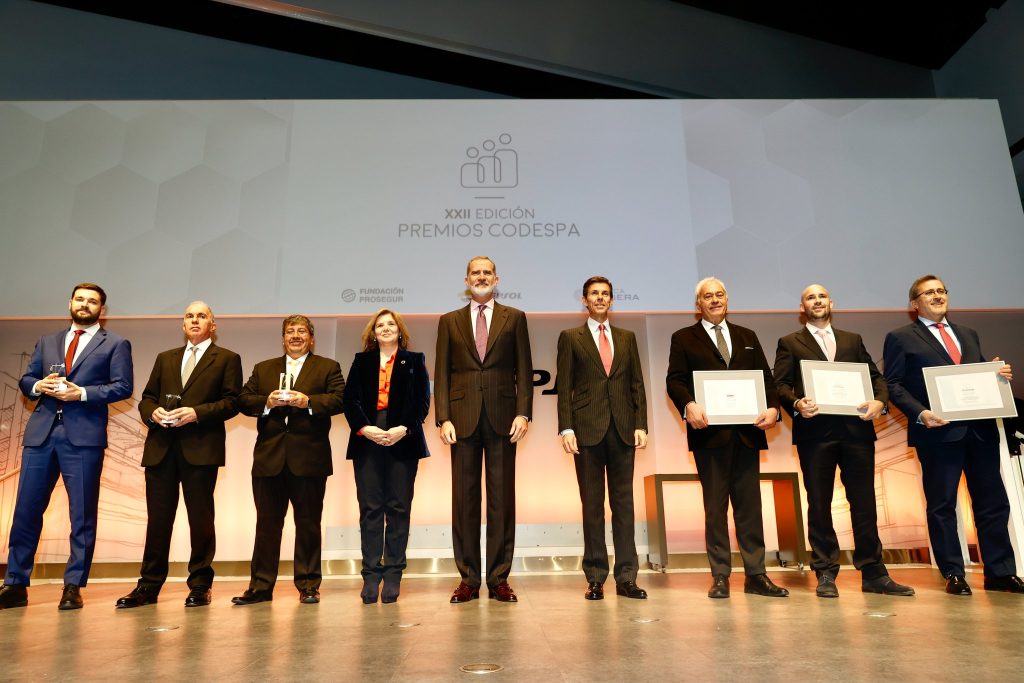JAVIER CONDE
‘EVERYBODY CALLS ME ALBERTO': SLOGAN OF THE 'CONSENSUS' CANDIDATE IN VENEZUELA?

Alberto Vollmer remembers the phrase his father told him when he was 13 years old and was handing him over to the Valley Forge Military Academy, in Wayne, Pennsylvania, where he learned English, horseback riding and military discipline: “Don’t try to beat the system; if you try to beat it, the system will beat you; listen, learn”. That teenager who did not like to study, who has now become executive president of Ron Santa Teresa – a thriving company in times of calamity – and also president of the National Council for Investment Promotion – an entity created during the second government of Carlos Andres Perez – has followed his father’s advice to the letter. “It was excellent”, he confided to Shirley Varnagy in a Father’s Day radio program last year.
Vollmer is the most lustrous surname of those who attended on Monday, February 5, the meeting of Jorge Rodriguez, one of the leading heads of the political system that has become a regime, to organize the schedule for the 2024 presidential elections. The image that transcended was that of Rodriguez shaking hands with a line of business representatives -religious people and a string of politicians who have earned the nickname of collaborationists also attended on alternate days- until he bumped into Vollmer, to whom he made a comment that the latter answered and laughed loudly. It is curious that days before these fraternal encounters, Chavista leaders had ranting against “the dictatorship of surnames”. It is confirmed that the rancor is only against one.
Fifth generation of the saga started by Francisca Ribas y Palacios – Simón Bolívar’s aunt – and Gustav Julius Vollmer, who came to these lands from Hamburg in 1826, the still very young Alberto Vollmer -born on July 27, 1968, the eve of Hugo Chávez’s 14th birthday- succeeded his father at the head of the rum distilling company, in critical situation at the end of the last century when the “Bolivarian Revolution” was coming to power. Throughout these 25 years of regime -or system, as you prefer- he has shared working days with both the late President and Nicolás Maduro. “Chávez was a great communicator. Maduro tends to be more of a negotiator”, he told Climax magazine in an interview years ago.
More than once Vollmer was put as a model businessman by leaders of the Bolivarian process. They praised his conditions of peaceful negotiator when he was able to reach agreements with those who invaded the lands of Hacienda Santa Teresa, in El Consejo, Aragua state, in February 2000, and saw redemption in the much publicized impact of the Alcatraz Project in which “gangs of young people participate, who decide to take the opportunity to change their lives and transform their violent leadership into a virtuous leadership”, as it is read in the online site of the Santa Teresa Foundation.
A note of the Aporrea portal, from 2007, expressed bitter complaints because Chávez wished in a national chain address that the “spirituous beverage” produced at Hacienda Santa Teresa be sold in Russia, after a presidential tour to that country, Belarus and Iran. The author of the article, Miguel Angel Hernandez, a Ucevist professor, lamented the turn of XXI century socialism towards the “rancid oligarchy” and imagined Vollmer’s happy face for the generous wedge.
Years later Vollmer accompanies Maduro at the long table that kicked off the Mercosur mission, where he introduces himself as a businessman, producer, trader and exporter and says that Venezuela had been divided for too long and it was necessary to compete as a single team. In 2017 he is the star of the first day of Expo Venezuela Potencia at the Poliedro in Caracas, that story of the 15 engines of the Bolivarian economic agenda that were to change forever the course of the nation.
“I would like to invite a great national businessman, who has been one of the great promoters of Venezuelan development, of the real Venezuelan industry, of the Venezuelan private sector? “This is how Tareck el Aissami -at the time Executive Vice-President of the Republic- introduces “Mr. Alberto Vollmer”, who gets up from his chair and walks smilingly in front of the table presided by Maduro, makes a gesture of greeting with his closed fist and speaks for half a dozen minutes to thank and congratulate the President for this initiative that they had been working on since the previous year -at the Economic Council for Production- and “even before”. Vollmer explained the idea behind the success of his company: “the PPP model: people, public, private”.
Then the now “disappeared” El Aissami takes the floor again, so that before Maduro speaks and following the words of “Alberto”, “the incentives in convertible foreign currency as well as in bolivars” are granted to the national productive sector. Maduro immediately hands over the certificates of credits and financing approved by the Foreign Trade Bank to eight companies: among others, Nestlé, Plumrose and Ron Santa Teresa, which received 4 million 390 thousand 875 dollars for the acquisition of fixed assets. The audience applauds.
That same year, journalist Jován Pulgarín, in the Climax interview, asks Vollmer if it bothers him to be called a “chavista businessman”. And he answers no – “it doesn’t bother me at all” – and then goes on to explain that in a polarized country, as confirmed by both the government and the opposition, he dedicates himself to “exploit” the wasteland between the two extremes to discover “a neutral territory that gives you extraordinary opportunities to meet people and build things”. This must be the reasoning that led him last Monday to that no-man’s land in the Salón de los Escudos of the Federal Legislative Palace where Jorge Rodríguez is in charge.
OPERATOR, CANDIDATE?
The illegal disqualification of Maria Corina Machado by the Chavista regime, has more than one, within the traditional opposition, fishing in troubled waters and trying to get their own back on them. Sources consulted pointed out that people such as the leader of the Un Nuevo Tiempo party, Stalin González, and the former rector of the National Electoral Council, Vicente Díaz, among other actors who militate in this same sector of the opposition, have been hovering around Alberto Vollmer to encourage him to be the substitute of the winner of the opposition primaries, whom they take for granted will not be able to participate in the presidential elections of 2024. This group considers that if Vollmer accepts, they can impose him as the candidate to face Nicolás Maduro in the election scheduled for this year.
Vollmer looks like a nice guy, simple, close. “Everybody calls me Alberto,” he has said about his relationship with the several hundred workers at Hacienda Santa Teresa, following the ways of his father, Alberto José Vollmer, who used to play baseball as one of his employees. He was educated between the United States and Venezuela, and sometimes alone in an in-house education, with private teachers and the watchful eye of his mother Cristine Marcellus de Vollmer, of English and French origin, part of a lineage of military men who fought in the world wars and even the Korean War, the fervent believer and founder of the ProVida Association.
A faithful follower of his father’s sayings and a proud admirer of the long family tradition that rescued Hacienda Santa Teresa from the disaster of the war of independence, Alberto Vollmer is, as he admits in a journalistic note with the BBC, an “optimistic businessman” and, particularly, a pragmatist who refrains from critical comments on what is happening in Venezuela and bets on economic rather than political change. “I leave the political stuff to the politicians”.
To Blomberg Linea, in an article in the middle of last year, he confided that publicly confronting the regime -the system- would only generate rejection. “I’m constructive in criticism and I do it directly, it’s going to be received in a very different way.” Vollmer has jealously guarded those relations with the established power since the remote times of the Bolivarian process, which he continues to observe as another historical cycle, both in his closeness with Chávez, and later with Tareck el Aissami, which arose, according to sources, in a “natural way” when the latter was elected in 2012 governor of Aragua State, where Hacienda Santa Teresa is located.
His relationship and influence in government sectors has grown in the shadow of the economic sanctions imposed on the regime. Key issue seems to be, as Blomberg reflects, his leadership in the National Council for Investment Promotion (Conapri) since precisely 2017, together with a group of businessmen he holds private meetings with senior officials -Delcy Rodríguez, the vice president, for example- for practical matters of trade financing, tariffs and taxes, pampering a “low profile” that protects from “the scrutiny of committed socialists or staunch critics of the regime”, as highlighted in the quoted note.
Vollmer was re-elected as president of Conapri in February 2022 and left an unequivocal message: “There is a change in the world’s vision of Venezuela”, which at the beginning of 2024 does not seem to correspond either to the political reality, after the freezing of the Barbados Agreement, or to the economic reality, judging by the meager results achieved, the insufficiency of public resources and the threat of the tightening of sanctions.
In sectors of the opposition, there is the conviction that Vollmer is a clear soft-faced operator of the regime, with an entry in Washington where he presents himself as an independent, and they also warn that business sectors sympathetic to Miraflores see him as a candidate for a “transition” of a different package than the one formulated by the opposition democratic forces.
His presence in the electoral call of Jorge Rodriguez, besides forcing him to leave aside the discreet profile and “to the politicians”, unleashes conjectures. The President of the Assembly contributed to the cause when he said that “it will always be better to look for a consensus figure and a consensus solution to the situations we have presented for the purposes of political life”. And Maduro, who talks backwards and forwards, in a VTV broadcast, with Cilia and Delcy, declared himself a fan of “detachment from power”. Will Vollmer be as select as his rum? Or a “cojonudo” drink, that instead of rum, carbonated water and squeezed orange peel, has a little bit of socialism with pachanga, a pinch of evangelicalism and a lot of convertible entrepreneurial “optimism”?
—-
Javier Conde, Venezuelan journalist, was part of the team responsible for the daily edition of El Nacional, Caracas. He is currently associate director of Feedback Comunicaciones.
This article was originally published in La Gran Aldea. We reproduce it here with the authorization of the author.



